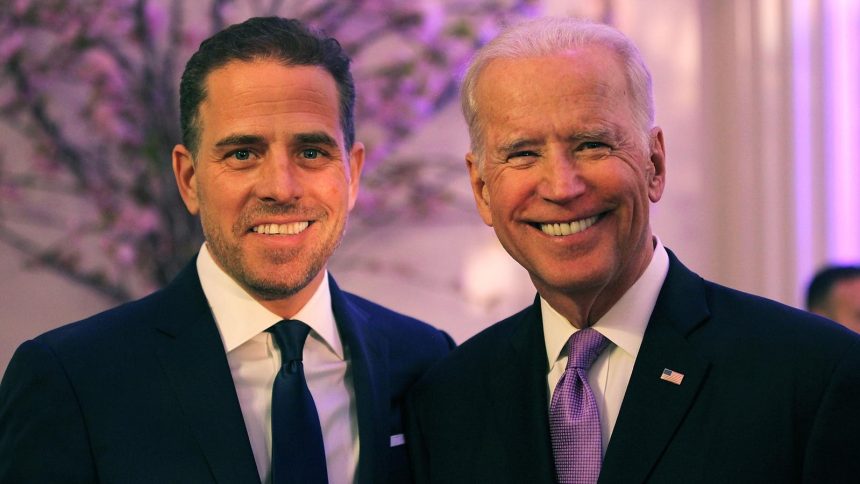In a notable turn of events during President Joe Biden’s final days in office, he pardoned his son Hunter Biden, an action that wipes away the convictions related to tax offenses and gun law violations that Hunter faced. This “full and unconditional pardon” covers all alleged offenses since January 1, 2014, including Hunter’s felony conviction for lying on a federal gun application, as well as his guilty plea for felony tax violations. This surprising decision is a complete reversal from Biden’s previous stance in June, where he explicitly dismissed the idea of using his presidential pardoning power to assist his son. In light of the pardons, Biden asserted that Hunter had been subjected to selective and unfair prosecution, suggesting that the charges arose from political motivations aimed at undermining his presidency and electoral efforts.
Hunter Biden’s legal troubles have been a focal point in political discourse, and President Biden articulated his belief that the justice process surrounding his son was substantially influenced by a politically charged environment. In his statement, Biden emphasized that charges stemming from Hunter’s misstatements on the federal firearm form are rarely prosecuted to this extent, which he believes illustrates that Hunter was a target due to his identity as the president’s son. The president also pointed out that tax offenses are generally not pursued criminally against individuals who have shown signs of serious addiction, reinforcing his sentiment that Hunter’s prosecution was mishandled. The ramifications of these charges were substantial; for instance, the gun charge alone held a maximum potential sentence of 25 years.
Reactions to the pardon have been mixed, particularly among Republican lawmakers who criticized the move as a gambit to shield Hunter from accountability. Representative James Comer of Kentucky, who chairs the House Oversight Committee and has investigated the Bidens, condemned the decision, suggesting it reflects a lack of accountability for the Biden family. Other conservatives voiced similar outrage, questioning the integrity of the Biden family and framing the pardon in the context of a broader political narrative involving allegations of wrongdoing. Some figures, like Rep. Marjorie Taylor Greene, went beyond Hunter’s case to deflect attention back onto former President Trump, making inflammatory comparisons regarding political prisoners, while Senator Chuck Grassley reacted with disappointment, calling Biden’s actions hypocritical.
The newly issued pardon not only alleviates Hunter Biden of any immediate legal concerns but may also preempt potential future charges from the incoming Trump administration. Hunter Biden has faced persistent allegations regarding illicit foreign business dealings, particularly in China and Ukraine. These claims have yet to yield substantial evidence; however, the political implications remain significant as Trump and his supporters appear poised to scrutinize the Biden family further. Notably, President Biden’s remarks alluded to a past plea deal that had fallen apart in court due to disagreements about future charges. This public negotiation between prosecutors and Hunter’s defense had signaled a potential resolution to the legal turmoil surrounding his son that could have evaded the need for presidential intervention.
Hunter Biden’s years-long saga encompasses a blend of legal challenges and political scrutiny, deeply intertwined with his personal struggles, particularly regarding addiction to crack cocaine. Initially charged last year with lying about his sobriety when applying for a gun and with failing to meet tax obligations exceeding a million dollars, Hunter’s legal situation escalated following the collapse of his plea deal. The new allegations included claims that he had used significant sums to fund an extravagant lifestyle rather than meeting his tax responsibilities. While Biden largely refrained from publicly commenting on the judicial proceedings, he consistently displayed a protective stance towards his son and his recovery journey.
Presidential pardoning authority is one of the broadest powers granted by the U.S. Constitution, allowing the sitting president to issue pardons to nearly anyone, with the notable exception of impeachments. This has led to contentious applications of the power throughout history, with previous presidents often using pardons in controversial manners. Notable examples include President Gerald Ford’s pardon of Richard Nixon, Bill Clinton’s controversial decisions involving his brother Roger, and Donald Trump’s numerous pardons of associates. The frequency and nature of these pardons often invite public scrutiny, and Biden’s pardon of Hunter could similarly spark debate about the ethical implications of using presidential powers to address personal family issues.



